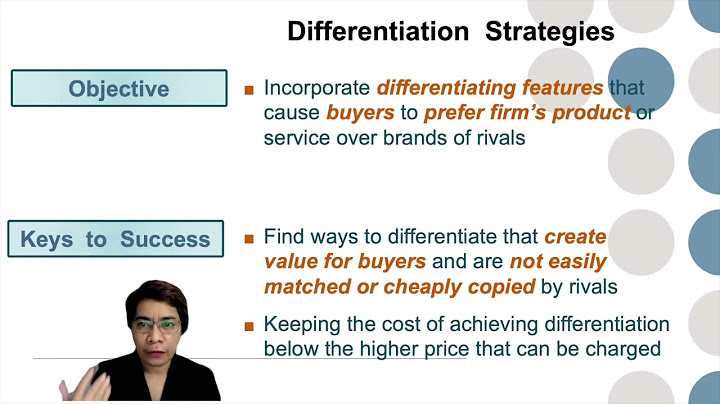Medication can be an effective tool in treating people who have previously had a myocardial infarction, or heart attack. It can also help prevent future attacks. Show
Different types of medication work in different ways to meet these goals. For example, heart attack medication may help:
However, you should not use heart attack medications to treat an acute myocardial infarction. There is no appropriate heart attack emergency treatment at home. A heart attack is a life threatening emergency requiring immediate treatment in an emergency room. Learn more about heart attack warning signs. Here’s a list of common heart attack medications, including how they work, why they’re used, and examples of each. Beta-blockers are a class of medications commonly used to treat heart problems such as high blood pressure, chest pain, abnormal heart rhythm, congestive heart failure, and heart attacks. These medications block the effects of adrenaline, which makes it easier for your heart to do its job. By decreasing the speed and force of your heartbeat, these drugs help lower your blood pressure. As a result, beta-blockers relieve chest pain and improve blood flow after a heart attack. Some examples of beta-blockers for people who have had a heart attack include :
Angiotensin-converting enzyme (ACE) inhibitors also treat high blood pressure and other conditions such as heart failure and heart attack. They block, or inhibit, the production of an enzyme that causes your vessels to narrow. This can help improve your blood flow by relaxing and widening your blood vessels. Improved blood flow can help reduce heart strain and further damage after a heart attack. ACE inhibitors may even help reverse structural changes to the heart caused by long-term high blood pressure. This can help your heart work better in spite of the damaged muscle segments caused by a heart attack. These medications may also be used to treat chronic kidney disease. There are three types of ACE inhibitors:
Additional examples of ACE inhibitors from the dicarboxylate category include:
On April 22, 2022, Pfizer issued a voluntary recall of 5 lots of the drug Accupril due to the presence of nitrosamine. Nitrosamine, a known carcinogen with the potential to cause cancer, was found to exist in the drug at levels greater than the Acceptable Daily Intake (ADI) as determined by the FDA. This recall is specific only to a handful of lot numbers and does not affect all Accupril tablets made by Pfizer. If you take Accupril tablets, talk with your pharmacist or doctor and they will help you determine if your medication has been impacted by the recall. In addition to the FDA’s warning on use during pregnancy, ACE inhibitors are not safe for people who are sensitive to the drugs or any of their components, or for those who have had angioedema because of an allergy or intolerance to such a drug or any other substance. Antiplatelet agents prevent clotting in your arteries by keeping blood platelets from sticking together, which is usually the first step in blood clot formation. Antiplatelet agents are typically used by people who have had a heart attack and are at risk for additional clotting. They can also be used to treat people with several risk factors for heart attack. Others likely to be prescribed antiplatelets include people who have had a heart attack and used thrombolytic medication to dissolve a clot and people who have had blood flow restored to their heart through catheterization. Aspirin is the most well-known type of antiplatelet medication. However, in 2019, the American College of Cardiology (ACC) and the American Heart Association (AHA) issued new guidelines that aspirin should not be the primary preventive method of cardiovascular disease among adults younger than 70 years old or those who have a higher risk of bleeding. In some cases, adults between ages 40 and 70 years old may use it in consultation with their doctor. The U.S. Preventive Services Task Force (UPSTF) has issued similar guidelines. The reasoning for these guidelines is that long-term use of aspirin may lead to negative side effects that outweigh the benefits of its preventive capabilities. According to the FDA, these side effects can include:
Besides aspirin, antiplatelet agents include:
Anticoagulant drugs are blood thinners, which means they reduce the risk of clotting in people who have had a heart attack. Unlike antiplatelets, they work by affecting the coagulation factors that are also involved in the blood clotting process. Examples of anticoagulants include:
Other anticoagulants include:
In 2021, the FDA approved Xarelto for use in pediatric patients to treat or reduce the risk of venous thromboembolism (VTE). The FDA has also approved the use of oral Pradaxa to treat VTE in children ages 3 months to 12 years. In addition to the FDA’s warnings, the Institute of Safe Medication Practices (ISMP) classifies anticoagulants as high-alert medications due to the risk of bleeding. To be safe, you should consult with a doctor before taking anticoagulants. Be sure to tell them of any other medications you’re taking to help them determine if there’s an increased risk for any interactions. While taking these drugs, it is important that you’re monitored regularly. Thrombolytic drugs, also called “clot busters” or fibrinolytics, are used immediately after a heart attack. They may be used when angioplasty can’t be done to widen the blood vessel and improve blood flow to the heart. A doctor may also prescribe thrombolytic therapy in conjunction with surgery. A thrombolytic is given in a hospital through an intravenous (IV) tube. It works by quickly dissolving any major clots in the arteries and restoring blood flow to your heart. If the blood flow does not return to normal after the first treatment, additional treatments with thrombolytic drugs or surgery may be required. Examples of thrombolytic medications include:
There are many types of medications that can help treat heart attacks and prevent them from happening again. They work in different ways to help reduce your risk factors and improve your heart’s function. If you have had a heart attack, your doctor will talk with you about the specific medications that can help you recover and prevent additional attacks. What drugs are given after myocardial infarction?Cyclo-oxygenase (COX) inhibitors (e.g., aspirin) and adenosine diphosphate receptor (P2Y12) antagonists (e.g., clopidogrel, ticagrelor, prasugrel) are routinely prescribed platelet inhibitors post-MI [39].
Which drug is used to decrease the risk of myocardial infarction in patients with unstable angina or previous myocardial infarction?Benefits of nitroglycerin (glyceryl trinitrate or GTN)
Since its discovery over 150 years ago, GTN has become the most common treatment for patients with unstable angina pectoris, myocardial infarction and heart failure.
Which of the following drugs is considered to be most effective in relieving and preventing ischemic episodes in patients with variant angina?Sublingual nitroglycerin — Sublingual (under the tongue) nitroglycerin (NTG) is usually recommended to treat sudden attacks of angina and to prevent angina while engaging in activities that typically trigger angina, such as mowing the lawn, playing sports, or walking up a hill (especially in the cold).
What is the drug required to treat patient with angina pectoris?Nitrates. Often used to treat angina, nitrates relax and widen your blood vessels, allowing more blood to flow to your heart muscle. Nitrates in pills or sprays act quickly to relieve pain during an event.
|




















